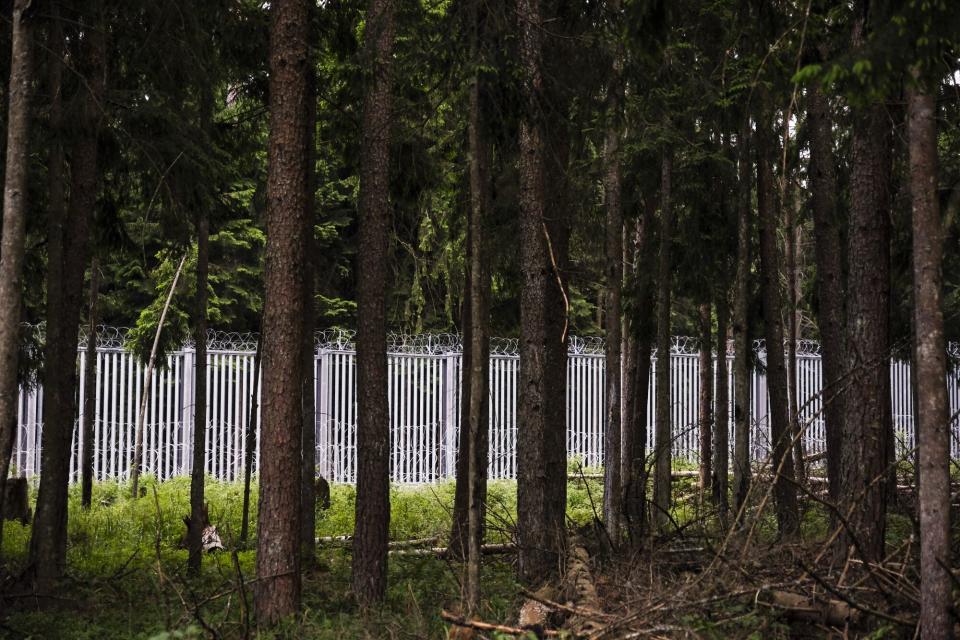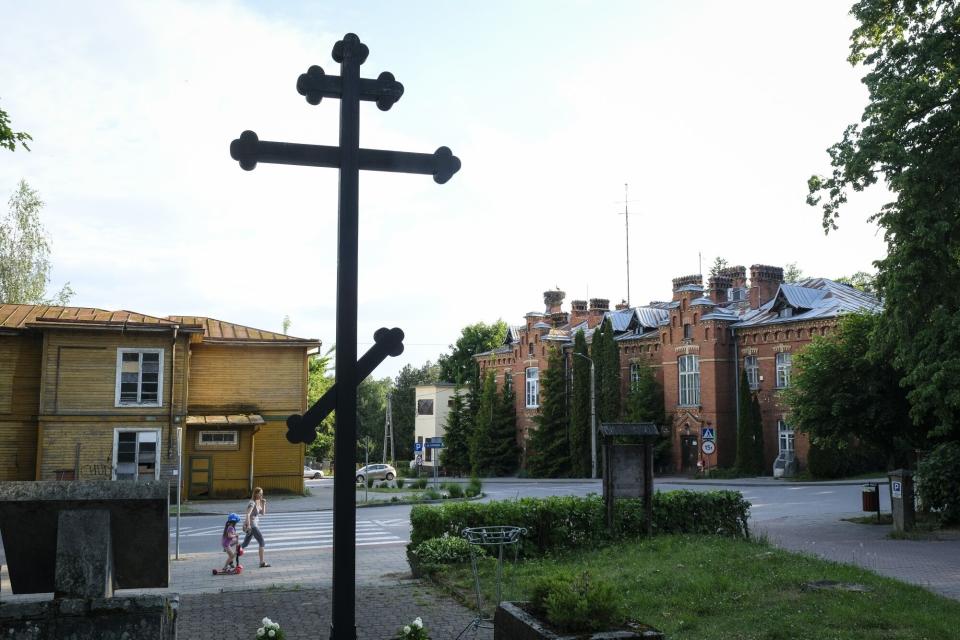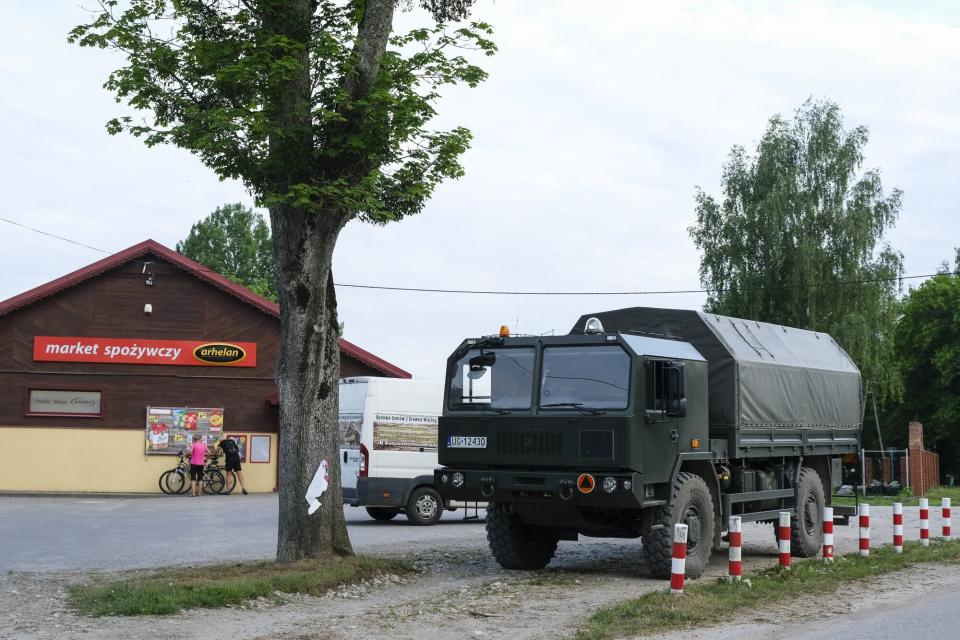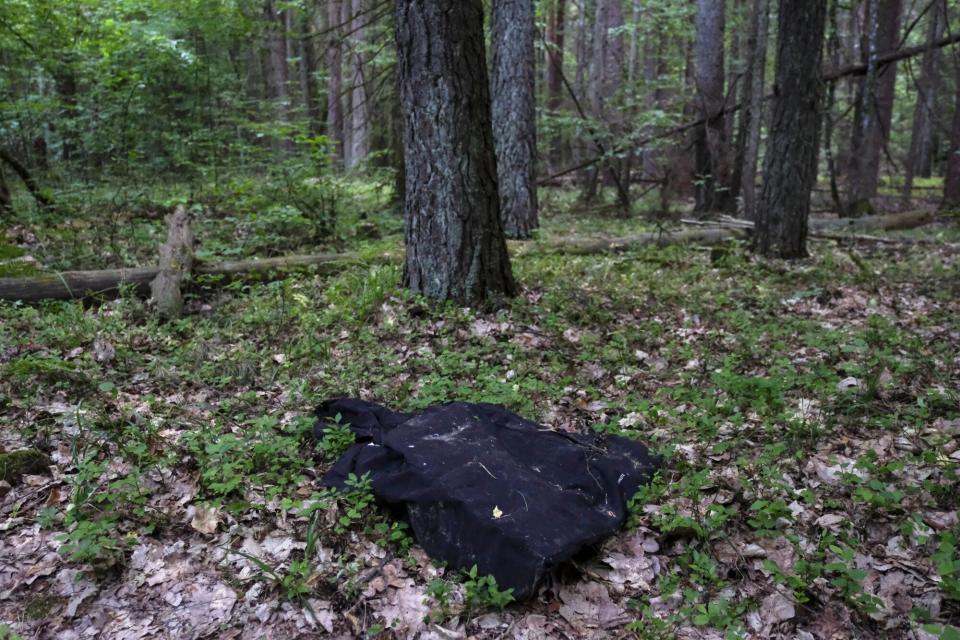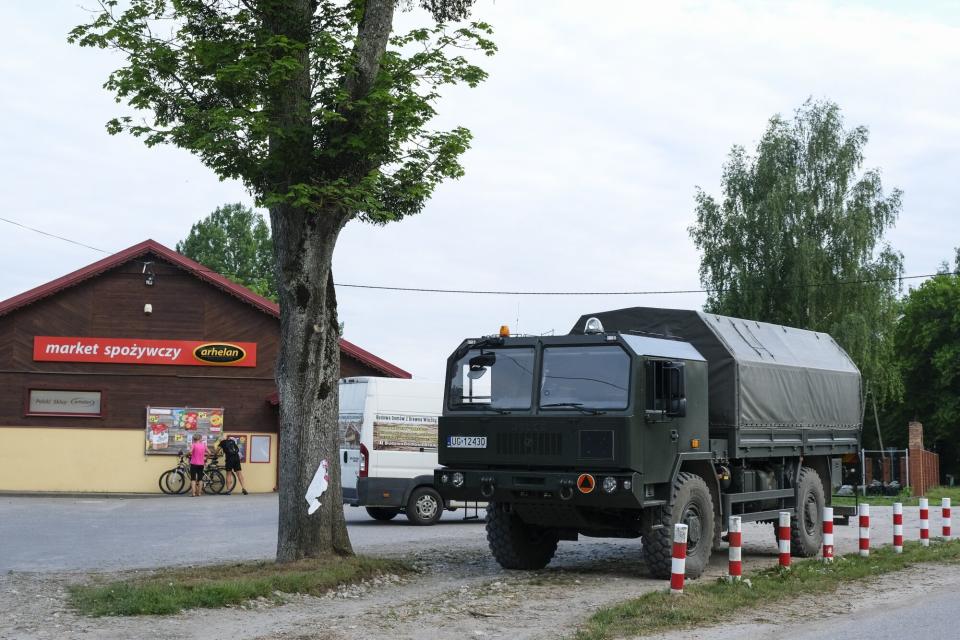Russia’s Threat Puts Security at Forefront of European Elections
(Bloomberg) -- When a guard patrolling Poland’s eastern border was attacked by a migrant trying to illegally cross from Belarus last month, Prime Minister Donald Tusk rushed to the scene.
Most Read from Bloomberg
Modi Vows to Retain Power Even as Party Loses India Majority
Short Sellers in Danger of Extinction After Crushing Stock Gains
Bonds Rally as Traders Reload Fed Bets After Data: Markets Wrap
Stock Pickers Defy Wall Street Norm to Risk It All on a Few Bets
Intel CEO Takes Aim at Nvidia in Fight for AI Chip Dominance
Standing in front of camouflaged army vehicles next to servicemen in fatigues in the village of Dubicze Cerkiewne, Tusk promised to use all means necessary to seal the frontier and ward off what he described as a concerted attempt to destabilize Poland. There would be an exclusion zone along the border and equipment to stop tanks and drones.
The tough talk could have come from his nationalist predecessors or their political bedfellows in Hungary, Slovakia or even the US. But Tusk is putting security front and center before European Parliamentary elections on June 9 in an attempt to reinforce his grip on the country at a critical moment for the continent’s political landscape.
The war in Ukraine, now well into its third year, is sparking fears from the Baltic states down to Moldova that Russia will try to exploit Europe’s vulnerability. Pro-Kremlin disinformation campaigns sought to help the rise of the far-right, while the authorities in Poland say Russia and ally Belarus are weaponizing migrants.
By seizing on such warnings, Tusk, a former European Council president, is seeking to counter those forces and also outflank his nationalist adversaries in the Law & Justice Party who he ousted from power in October.
“It’s an attempt to effectively deprive populists of oxygen,” said Anna Materska-Sosnowska, a political scientist at Warsaw University. “What’s different is that Tusk, unlike Law & Justice, wants to build the sense of security on two legs, meaning a strong Poland in a strong European Union.”
Before the October parliamentary election, Law & Justice portrayed Tusk as weak on defense and either in cahoots with Russia or Germany. But after a standoff with the EU that threatened Poland’s funding and an outcry over women’s rights, Tusk and his coalition prevailed.
Tusk now wants to turn the tables before a European vote where turnout is typically much lower than in national elections and where fringe parties often make gains. After a judge linked to the Law & Justice government defected to Belarus, Tusk’s party pounced, disseminating a video alleging party links to Russia. It also claimed to have foiled Russian sabotage attempts.
In a post on social platform X, Tusk was blunt: “If you don’t want to go to war, go vote,” he said. “No one will dare to attack a strong and united Europe. A weak and divided Europe may fall victim to aggression.”
The message holds particular resonance for people living along Poland’s 400 kilometer border with Belarus. For months since the end of 2021, the area of Europe’s last primeval forest and marshes became the scene of attempts by tens of thousands of undocumented migrants to cross into the EU. The previous government put up a steel fence to try and stop them.
Tusk’s rhetoric, though, is in stark contrast to when he was leader of the opposition. In late 2022, he was calling the way the army was repelling migrants inhumane, accusing the Law & Justice government of “wickedness.” Some in his Civic Platform party dispatched aid.
The Helsinki Committee for Human Rights noted the change of tone. It called the continuation of the previous government’s policy by Tusk’s coalition “terrifying.” “There are no longer any references to humanitarianism in these announcements,” it said in a joint statement with NGOs working at the border.
In recent weeks, the number of attempts to breach the border have started to pick up again. Tusk said the migrants were predominantly from Yemen, Somalia, Afghanistan, Syria and Iran and had visas issued by Russia.
Izabela Pajszczyk owns several wooden holiday houses for rent in Niemirow, a small village along Bug River less than a kilometer from the border with Belarus. She said army patrols help people feel secure, but recent attacks on border guards are disturbing. She wants to see “real action” from Tusk and is hoping for the EU to help improve security.
“In the last months, our clients began to be less concerned about security issues and bookings started to look decent,” said Pajszczyk, 61. “But I’m afraid that recent press conferences and events will derail our hopes.”
Plans to strengthen the border with several layers of obstacles have become a focal point of the campaign before this weekend’s vote. Called “Shield East” and costing 10 billion zloty ($2.5 billion), it would cover 700 kilometers and include the border with the Russian exclave of Kaliningrad. Some 78% of Poles support the proposal, according to an IBRiS pollster survey for Rzeczpospolita newspaper.
At a gathering in May in a stronghold of his opponents, Tusk said Poland in coming years will depend on how the EU develops politically. Hungary, for example, is currently blocking a batch of military aid for Ukraine.
“We are really one step away from overtly pro-Russian forces gaining the upper hand in Europe,” he told the meeting at an open-air theater in Bialystok, the main city in the pro-Law & Justice eastern region of Podlasie. “I won’t lie to anyone that our priority must be safety.”
Military trucks with soldiers changing shifts and border guards going to and from their posts are stark reminders that the situation remains tense. Part of the border investment plan is to repair and improve local roads and bridges to help logistics.
Owners of bars and apartments as well as souvenirs sellers are afraid that plans for new military installations will force them to relocate. The previous entry ban affected many villages, including Bialowieza, which is a base point for trips to the nearby national park.
“I understand it’s a pre-election move to focus on security,” said Slawomir Dron, 55, who runs a restaurant in the center of Bialowieza. “But it would be good also if politicians go to local places for some lunch or even stay overnight — to show there is still life here and local people are still part of the EU and NATO as well.”
Sign up to our Eastern Europe Edition newsletter, delivered every Friday.
Most Read from Bloomberg Businessweek
Startup Brings New Hope to the Pursuit of Reviving Frozen Bodies
The Budget Geeks Who Helped Solve an American Economic Puzzle
Disney Is Banking On Sequels to Help Get Pixar Back on Track
How Rage, Boredom and WallStreetBets Created a New Generation of Young American Traders
©2024 Bloomberg L.P.



